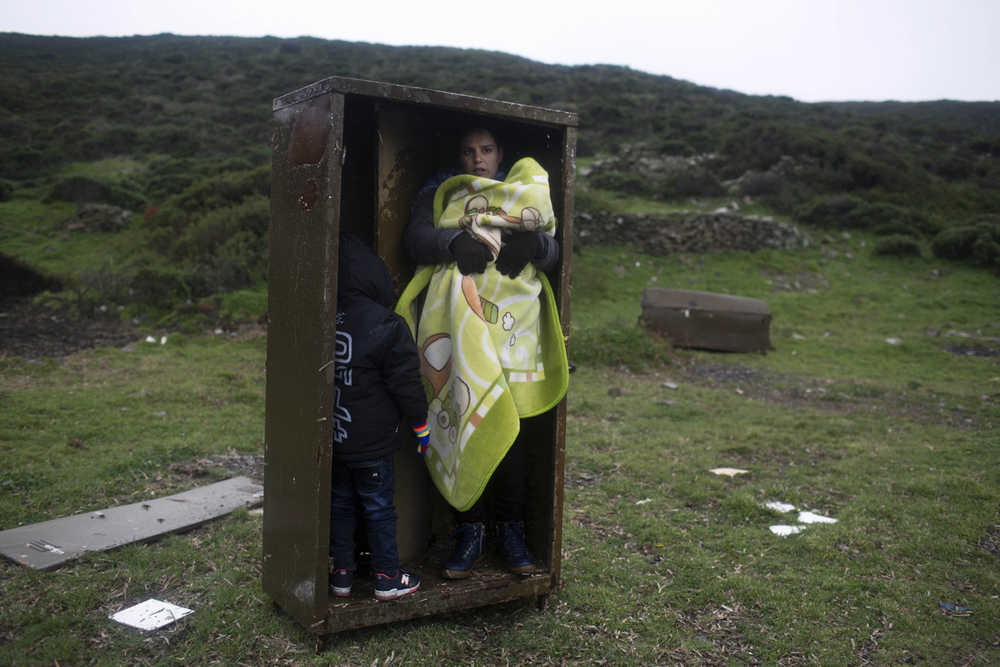AMMAN, Jordan — Faced with a chronic shortfall in Syria aid, the World Bank and other donors are promoting new ideas, including interest-free development loans for the hard-hit Middle Eastern countries that are hosting most refugees.
The idea was discussed at a meeting with top officials from regional host countries on Monday, ahead of next week’s Syria pledging conference, where aid agencies and regional governments are expected to seek close to $9 billion for 2016.
The appeal at the Feb. 4 conference in London would include $3.18 billion to alleviate suffering inside Syria and $5.75 billion for close to 4.3 million war refugees and their regional host countries, among them Jordan and Lebanon, according to U.N. figures.
Last year’s aid request of more than $8 billion was only half-funded, a gap that forced cuts in vital food and cash aid for refugees in regional host countries and was seen as one of the triggers for the influx of hundreds of thousands of displaced Syrians to Europe last year.
The shortfalls have led to a search for a new approach, including shifting from what has largely been humanitarian relief to funding development programs, such as building schools, hospitals and water networks in overburdened host countries.
The London conference is also expected to discuss ways to put more refugees to work and make them less dependent on aid — a hot-button issue in Jordan and Lebanon, where unemployment is high.
On Monday, representatives from the World Bank, the Islamic Development Bank and the U.N. met with top officials from refugee host countries to gauge the response to the idea of loans, potentially with zero interest, to Jordan and Lebanon to help narrow funding gaps.
The idea was first raised last year, but more details were presented at Monday’s closed-door meeting in the Jordanian capital of Amman.
“We are faced with a reality that grants are not infinite,” Ferid Belhaj, the World Bank director for the Middle East, told The Associated Press. In such a climate, inexpensive loans are the next best option for Jordan and Lebanon, he said on the sidelines of the meeting.
Belhaj said he expects vigorous debate over how much Jordan and Lebanon would be expected to borrow.
“The politics of it are very heavy,” he said in a separate phone interview last week.
“So we need to wait for all the stars to get aligned and … the donors showing how much they are ready to put on the table, and based on that see what the Lebanese and the Jordanians will be willing to accept in terms of borrowing,” he said.
The two countries have argued that they pay a high economic price for providing a global public good — hosting large numbers of refugees — and that the world must do more to help them.
About 1.2 million Syrian refugees have been registered in Lebanon and about 630,000 in Jordan.
Imad Fakhoury, the Jordanian planning minister, said Monday that he expects the international community to step up in London and provide “substantively more support and resources for countries that are about to enter the sixth year of the crisis.”
Jordan welcomes potential offers of concessionary financing, including for development programs that the country had to put on hold after the 2011 start of the Syria crisis, he said.
However, Jordan expects grants — not loans — to address the needs of refugees and of host communities in Jordan that had to absorb large numbers of displaced Syrians. “We will not borrow, as a country, to fund priorities related to the Syrian refugees,” Fakhoury told AP.
Meanwhile, the head of the International Labor Organization, Guy Ryder, is visiting Jordan later this week to talk to government officials about labor rights for refugees — a key component of the aid debate.
Largely barred from working legally, many Syrian refugees in Jordan and Lebanon work in informal day jobs for low wages.
As an interim step, the ILO has called for work permits for Syrians in sectors that have trouble attracting locals, such as agriculture and construction in Jordan.

